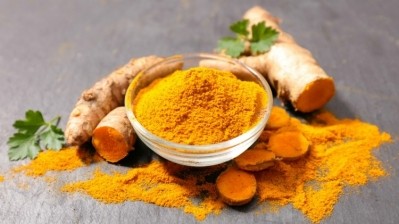Malaysian supplements policy: Trade body MADSA calls for sales tax removal and less stringent rules for new formulations

Malaysian Dietary Supplement Association (MADSA) held its 10th annual general meeting on June 30 and elected a new council, which saw Steven Chin from Herbalife elected as the president, while Dean Lee from local firm B-Crobes became the vice-president.
The nine-person council, which included representatives from Blackmores, P&G, Bayer, Mega Lifesciences, were elected for a two-year term.
As of this month, the association consists of 32 member companies, with B-Crobes, Reckitt Benckiser (RB), and Medispec newly on board.
The council has identified a number of key priorities to promote the dietary supplement sector in the country, James Pereira, general manager at MADSA, told NutraIngredients-Asia.
Eliminating sales and service tax on supplement purchase, allowing consumers to enjoy tax relief when buying supplements, and easing regulatory barriers on innovative supplement imports are some of the key priorities.
“First of all, we would like to remove the sales and service tax, which is implemented on dietary supplements but not for medicines. This is a discriminatory practice,” Pereira said.
In Malaysia, dietary supplements are subjected to five per cent sales and service tax.
Pharmaceutical products such as medicines, medical cream, bandages, medicaments containing multivitamin and minerals are exempted from the tax.
In addition, MADSA hopes that the government would allow tax relief on dietary supplements purchase.
At the moment, the purchase of lifestyle products such as sports equipment, personal computer, smartphone, books, newspapers could enjoy a tax relief of up to MYR$2,500 (US$596).
“We are trying to convince the government to add in supplements purchase as well, because that truly is [part of our] lifestyle. If gyms and sports equipment are included, why not dietary supplements which are going to boost your health?
“Because if the rationale is that buying a sports equipment is meant to improve one’s health, then that's exactly the same thing for [individuals buying] supplements as well.”
Removing sales tax and providing tax relief for dietary supplement purchase will in turn make supplements more affordable and promote greater consumption, the association believes.
According to a market research conducted in end June, Malaysians are willing to spend MYR$300 (US$71) on their personal supplement use and MYR$600 (US$142) for family use.
The survey involved 400 individuals from different parts of Malaysia and MADSA recently released the results to its member companies.
Another research conducted in 2019 showed that the usage of dietary supplements was less than 30 per cent in Malaysia.
Malaysia’s dietary supplement market was worth about MYR$2.2bn (US$544m) last year, Pereira said.
Vitamin and herbs
On the other hand, MADSA hopes that the authorities would ease the current restrictions on innovative dietary supplements, such as those containing both vitamins and herbs.
According to Malaysia's National Pharmaceutical Regulatory Agency (NPRA), safety data is needed to substantiate the safety profile of complementary medicines that contain new ingredients, existing ingredients in a new combination, dosage, delivery system, and new methods of manufacturing.
As such, combinations of vitamins and herbs would need to provide safety data, while this is not required for vitamins and minerals, traditional medicines with documented data, and health supplements consumed as food.
“For a combination consisting of new active ingredients, toxicological and clinical data for finished product may be requested. This will also apply to new combinations of well-known ingredients. Safety data will have to be on the product with information on individual ingredients as supportive references,” said the NPRA.
However, Pereira said that the rule was a contradictory one, since overseas legislations which the Malaysian authorities have referenced to, including Australia’s Therapeutic Goods Administration (TGA) and Health Canada, have allowed such combinations.
“If you consider them reference countries, why not just follow [their decisions]? Why are you trying to reinvent the wheel? That's going to slow down the process of registering new innovative products,” he said.
He added that the NPRA could conduct pharmacovigilance while following the TGA and Health Canada’s decisions.
Blackmores Bio C 1000 + Effervescent is an example of a product which contains both vitamin and herb. In this case, vitamin C, echinacea, and zinc are used. The product is available in neighbouring country Singapore as well.
The association also hopes to remove the ban on commonly used ingredient such as conjugated linoleic acid (CLA), which is currently on the list of prohibited active ingredients.
Pereira said the association has been compiling and sending scientific evidence on the benefits of supplements in hopes of persuading the regulators in removing sales tax and allowing innovative formulas.
“We are trying to compile published data from other countries. If there is available data from Malaysia, we will use them or studies from Asia itself, because that will probably carry more clout as well.”
Import tax
Another action plan is to eliminate import duties on supplement ingredients and finished products containing fish oil, curcumin extract, and amino acids, where there is an import duty in place.
Pereira said MADSA has been engaging departments such as the Ministry of Health, Ministry of Finance, Ministry of Agriculture and Food Industries in driving its cause.


















